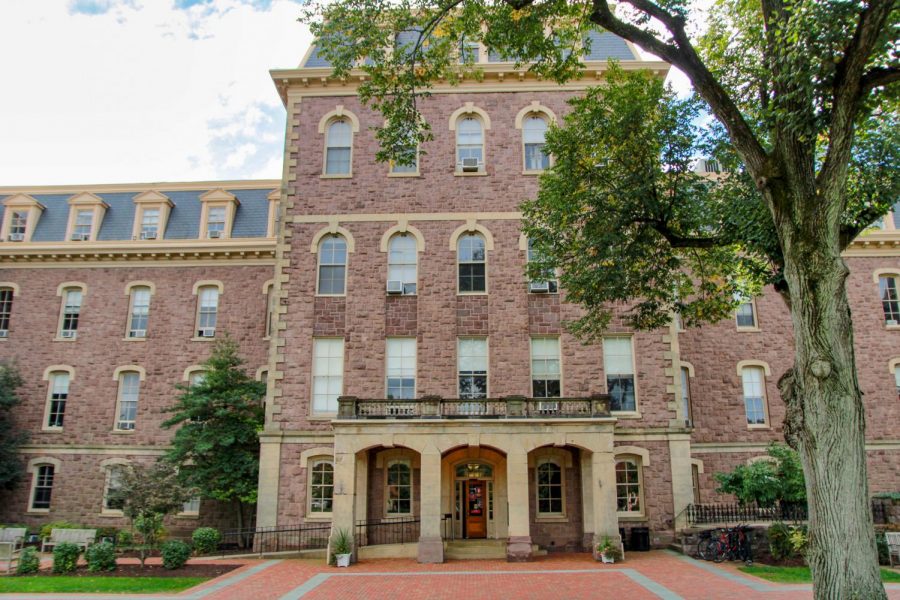Changes to study abroad financial aid policy possible in near future
Sixty to 65% of Lafayette students studied abroad during the 2017-18 school year, putting it above the national average. (Photo by Kwasi Obeng-Dankwa ’23)
November 5, 2021
Financial aid for study abroad trips is currently an issue at the forefront of serious debate and consideration, as staff on a subcommittee of the Off-Campus Study Committee discuss ways to move forward and adjust current policies.
A recent policy from the Office of Financial Aid stated that students who have received aid for any type of trip abroad in the past will not be eligible to receive aid for interim trips, such as a winter trip to Senegal through the Africana Studies Department.
According to Forrest Stuart, assistant vice president for Financial Aid, a subcommittee has met once in order to discuss how to change this policy. The meeting had been scheduled for a few weeks before an article in The Lafayette detailed the policy and student concerns about accessibility.
“We have only had one meeting, but that meeting produced some data gathering ideas that will help us move forward in the right direction,” he said.
While the committee is currently only working on producing information and numbers, Stuart said that there is “a unified commitment to address the issues.”
Studying abroad is an expensive endeavor that many students would have the inability to afford without support from their institution.
The issue of funding is not unique to Lafayette–many colleges have faced issues in terms of balancing their budget to fully encompass the cost of studying abroad. Williams College, a liberal arts school in Massachusetts, saw issues with students receiving deposits for indirect costs which consist of day-to-day expenses that are not covered by the institution, such as laundry.
Similar to Lafayette’s interim trips, nearby Lehigh University hosts programs which are not covered by students’ federal or institutional financial aid.
During the 2018-19 school year, 1.8% of all U.S. students at higher education institutes studied abroad, compared to 60-65% of Lafayette students during the 2017-18 school year. This cannot fully be attributed to financial aid’s comprehensiveness, given that some students have the ability to finance their own trips. However, it reveals a larger pattern of Lafayette students’ desire and drive to study abroad.
Stuart believes that, realistically, there could be increased financial opportunities for students in the near future.
“I think we will see increased financial opportunities for students,” Stuart said. “This has to be carefully executed to stay within the board-approved financial aid budget, but we can make headway.”
Finding room within the budget to fund all expenses that are essential to the college student’s experience can be a challenging task given the difficulties in distributing available funds. In order to put more money towards aid for interim trips, funds would have to be pulled from somewhere else, given the lack of available unused funds.
The subcommittee views the matter at hand as an “extremely important and timely issue,” according to Stuart. He pointed out that oftentimes financial aid works to address a student’s cost of attendance at an institution, but urges a perspective shift towards the cost of experience. These experiences would include students’ ability to participate in a broad range of activities that allow them to fully reach their potential.
“Financial aid is one way to help students experience all of what Lafayette offers. It is not the only means, but it’s an important one,” Stuart said.


























































































































